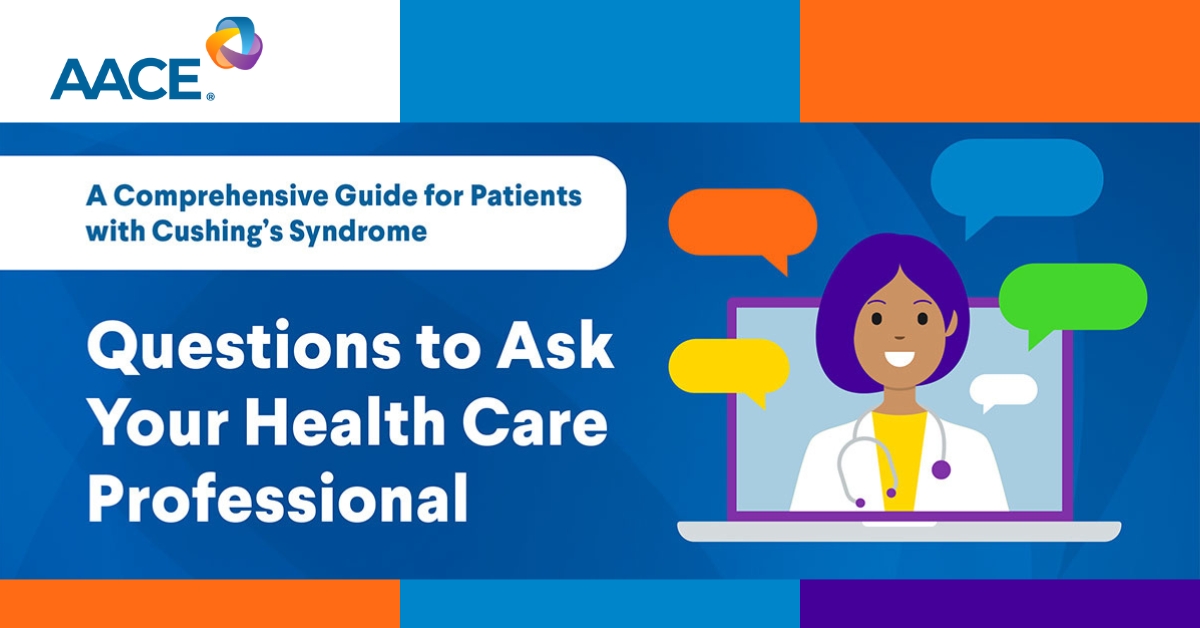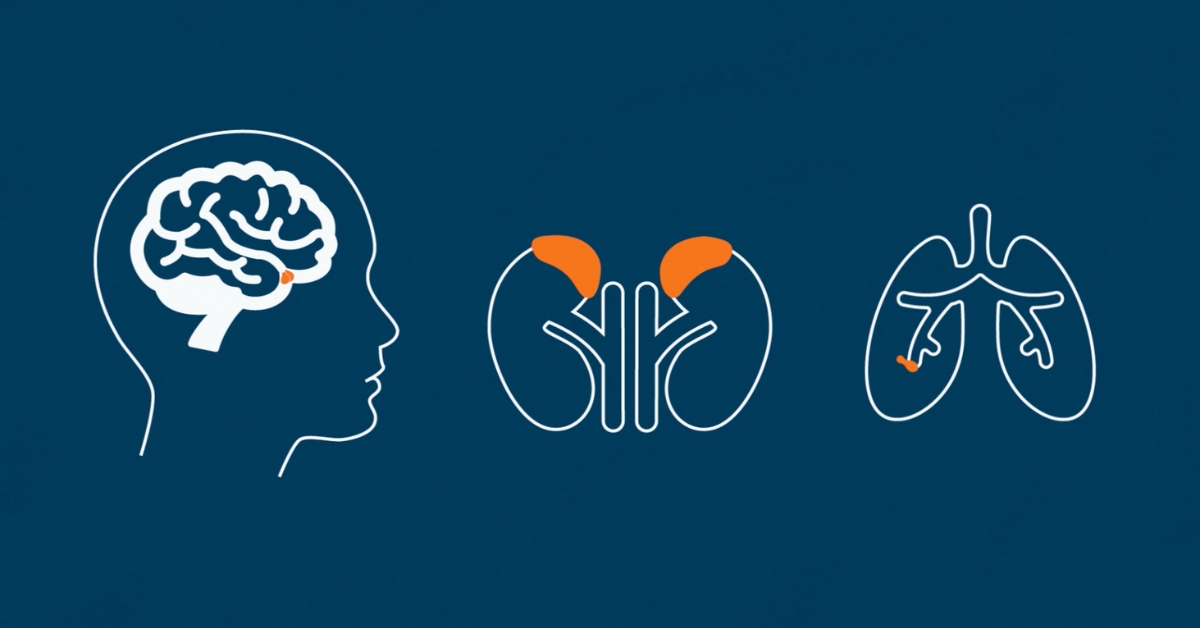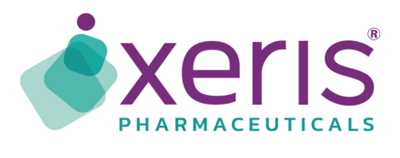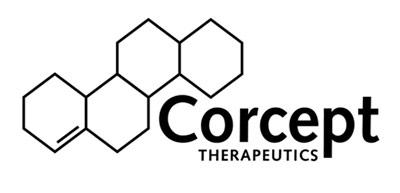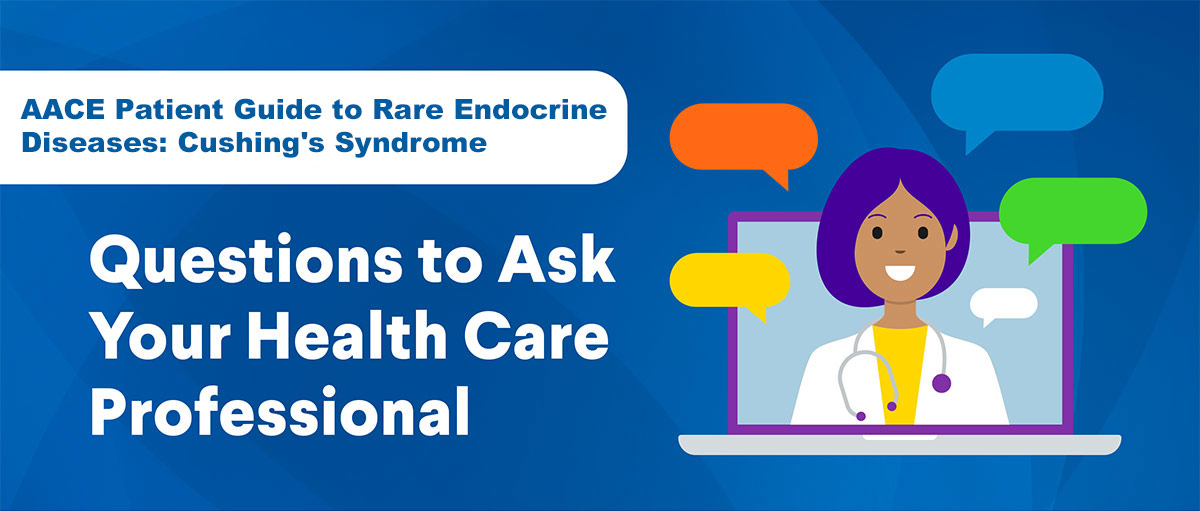

- What is cortisol, where does it come from, and what does it do?
- Could my symptoms be due to Cushing's syndrome?
- Is Cushing's syndrome the same as Cushing's disease?
- Can Cushing's syndrome be prevented?
- How do I know which type of Cushing's syndrome I have?
- What do exogenous and endogenous mean?
- What are some examples of exogenous steroids?
- If I have a tumor, could it mean I have cancer?
- How could Cushing's syndrome impact my overall health?
- Are there any complications I should be worried about?
- Can children get Cushing's syndrome, or is it just adults?
- Can my children get Cushing’s syndrome if I have it?
- Is Cushing's syndrome more common in females or males?
- Are there any risk factors of Cushing’s syndrome I should be aware of?
- What happens if Cushing's syndrome is not diagnosed or is left untreated?
- Could my life be shortened if I have Cushing's syndrome?
- What are the most common complications of Cushing's syndrome?
- What is the pituitary gland, and what does it do?

- I've noticed that I've recently gained weight for no good reason or despite dieting and exercise. Could this be a Cushing's symptom?
- Despite my weight gain, my arms are getting smaller and my skin is getting thinner. Could this be a Cushing's symptom?
- Why is my face and the back of my neck puffy?
- Why am I losing hair?
- Why is my face growing hair?
- Can we talk about my high blood pressure?
- Is the worsening of my diabetes a cause of concern?
- Could Cushing's syndrome affect my menstrual cycle?
- Could Cushing's syndrome affect my fertility or libido?
- I've noticed stretch marks on my body and that I bruise more easily. Do I have Cushing's syndrome?
- I've been having difficulty climbing stairs due to weakness in my legs. Is that part of Cushing's syndrome?
- Are there other signs and symptoms to be aware of for Cushing's syndrome?
- How will my symptoms change over time?
- How do you know if my symptoms are a sign of Cushing's syndrome and not something else?
- What do I do if my medications are causing my symptoms?
- If I have Cushing’s, how will that affect my medication (e.g., antidepressants, antipsychotic medication, antianxiety medication)?
- I feel anger and rage sometimes, seemingly out of nowhere, and it’s not characteristic of me. Could this be from high cortisol?
- I can’t focus on my work, I’m forgetting things, and I can’t concentrate. Could that be related to Cushing’s syndrome?
- I'm anxious all the time. Is there anything I can do to relieve that while I go through weeks/months of testing?

- Are there specific tests to screen for Cushing's syndrome?
- How do you test my cortisol levels?
- Why is my cortisol level higher than normal?
- Why is an 8am blood cortisol lab result not used for diagnosis?
- What is a saliva test? Why do I need to do it at bedtime?
- What is a 24-hour urine test?
- What is a dexamethasone suppression test? Are there any specific requirements for this test?
- Do I collect my saliva or urine samples at home?
- Do these samples need to be kept in the fridge or freezer until I can return them to the lab? And how long can I wait to deliver that urine jug after I’ve completed the 24 hours?
- How long does it take to get results?
- Why and when do I need imaging such as an MRI or CT scan?
- Should I get a second opinion?
- How many tests do you need to confirm I have Cushing's syndrome?
- What is an IPSS/AVS, and when do I have that done?

- What are my treatment options?
- How do I know if surgery is right for me?
- What should I know about possible complications of surgery?
- Are there medications I can take to control my symptoms?
- If I need to receive radiation therapy, does that mean I have cancer?
- Can I have radiation therapy instead of surgery?
- What is combination therapy, and is it right for me?
- How does the treatment of Cushing's syndrome affect treatment for other conditions (e.g., asthma, lupus, rheumatoid arthritis)?
- Does treatment cause any side effects?
- How do I know if the treatment is working?
- How will I be monitored if I'm started on medications?
- How soon after treatment begins should my symptoms improve or go away?
- How will my body change after starting treatment ?
- If the first surgery does not cure my Cushing's syndrome, what options do I have ?
- Are there alternative therapies I should consider?

- Does my insurance cover all screening tests?
- Does my insurance cover the imaging?
- Does my insurance cover medications?
- Does my insurance cover surgery?
- Does my insurance cover radiation therapy?
- If my insurance doesn’t cover my treatment plan, I don’t have insurance, or my co-pay is too high, are there resources to help me afford what I need?

- How will I manage my cortisol levels?
- Is my electronic health record fully accurate for all of the testing, diagnosis, and treatment I have received at this institution?
- What dietary changes can I make to improve my diet to support my post-treatment body against inflammation, gastrointestinal issues, etc.?
- My legs are still weak. Do you think physical therapy would help?
- How often should I check in with my health care professional after treatment?
- Do I need to continue seeing my doctor even after my Cushing's syndrome is in remission?
- Could Cushing's syndrome return after treatment? And if so, what are my treatment options?
- What are current statistics related to recurrence for my type of Cushing’s?
- Could Cushing's syndrome affect my work performance? Will I qualify for any disability accommodations if I need them?
- Could Cushing's syndrome or the treatment have any effect on my future fertility?
- Can Cushing's syndrome be passed down through families?
- How can I protect my mental health if I'm still living with symptoms?
- Are there any resources that can help my family and me cope with this disease?
- Where can I find patient-reported outcomes and long-term quality of life information beyond the clinical setting?


